THE WOMAN WHO RUNS THINGS:
FRANCES LOUISA GOODRICH (1856-1944)
Founder of Allanstand Cottage Industries
“Now, do you suppose you could go into some mountain community and live there yourself, raise the standard of human life, and bring some sort of order out of chaos?”
– Florence Stephenson, principal of Asheville Home Industrial School for Girls, addressing Goodrich, 1890
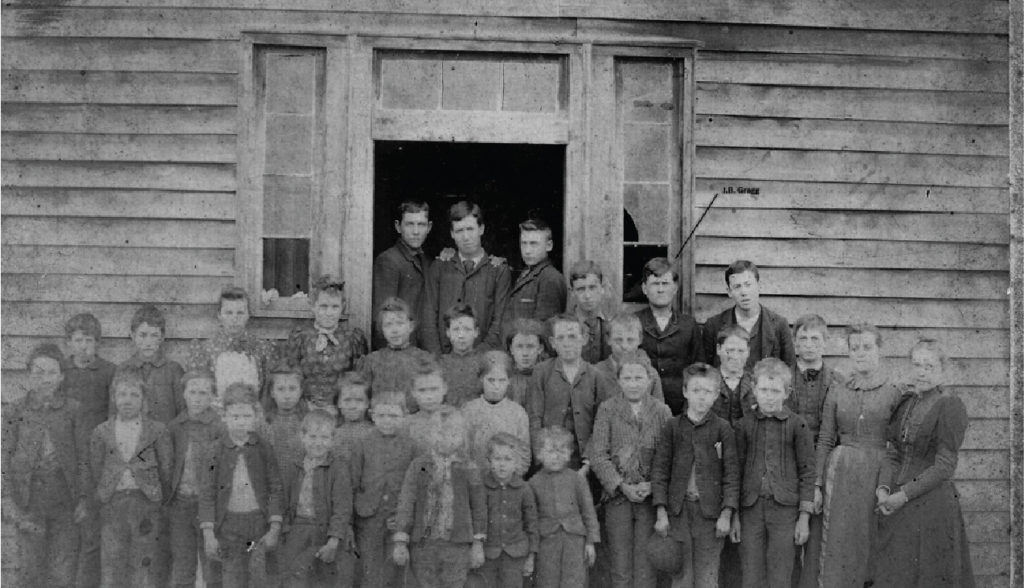
As early as the 1880s, the Board of Home Missions of the Presbyterian Church began setting up schools in Appalachia in an attempt to transform “the whole of mountain society into an assimilated, properly Christianized part of greater America.” In the Asheville area, there was a particular concern for the welfare of women and girls. – Jan Davidson, Introduction to Mountain Homespun, by Frances Louisa Goodrich
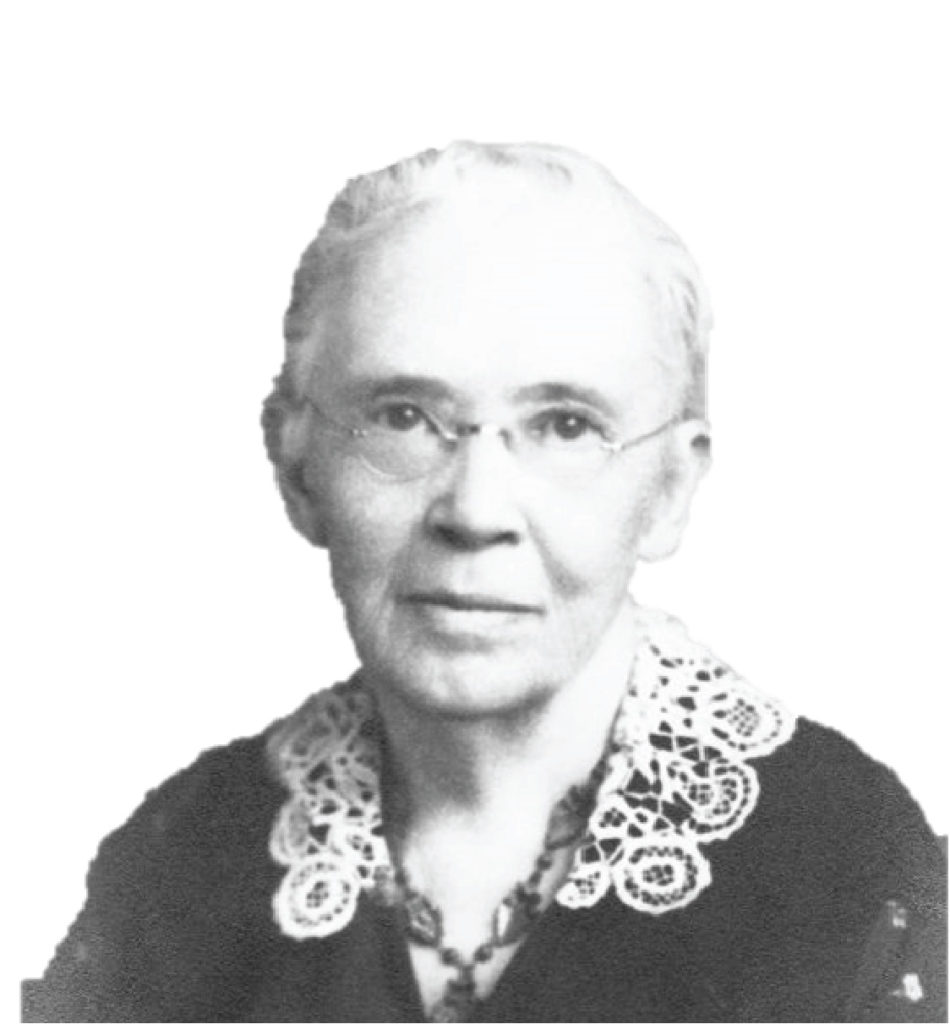
A Yale-educated, God-fearing artist from New York, Frances Louisa Goodrich answered the call of her Presbyterian brethren and, in 1890, took up a volunteer position at the small College Hill schoolhouse in the Riceville section of the Swannanoa Valley. Though her duties were largely self-defined, she soon earned the nickname, “the woman who runs things.”
“While [I] was pondering the resources at hand for bringing healthful excitement into the lives of [my] neighbor women, one of them brought to [me] as a gift a coverlet, 40 years old, woven in the ‘Double Bowknot’ pattern. With the coverlet was the ‘draft’ by which it was woven, a long strip of paper covered with figures very mysterious to [me]. The ‘woman who runs things’ was ‘put to her studies.’ Here was a fine craft, dying out and desirable to revive. Did [I] hold the clue to [my] puzzle in [my] very hand?”
Right: The double bowknot pattern.
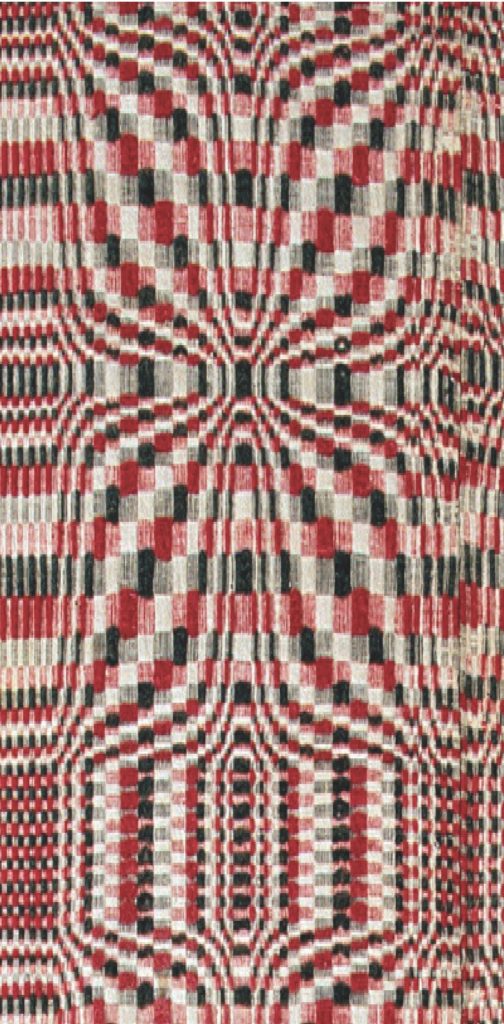
Working with women from the coves outside Asheville, Goodrich set up Allanstand Cottage Industries near the North Carolina-Tennessee border. She paid women to weave in their homes and then purchased each work piece by piece to sell. As the industry grew, she began commissioning a wider variety of handwork, including rugs, brooms, baskets, chairs, and dolls. In 1908, she opened a shop in downtown Asheville to sell mountain handicrafts to tourists. Many crafts were also sold by mail order through the Presbyterian Church.
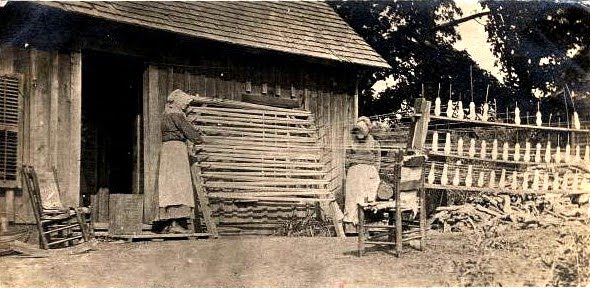
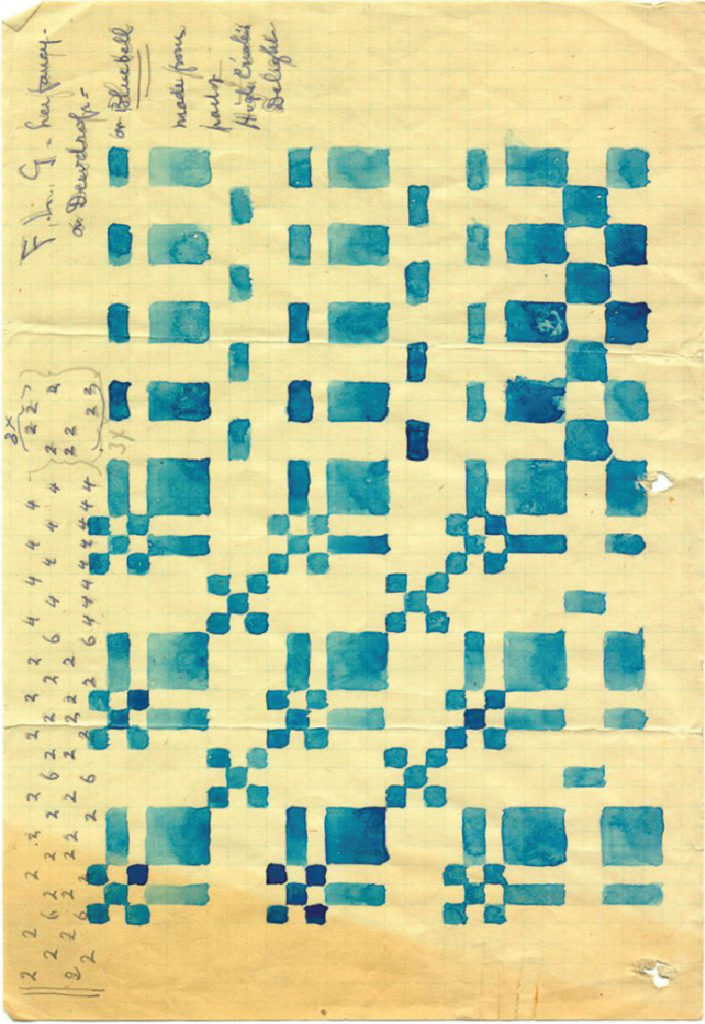
Left: While running Allanstand Cottage Industries, Frances would collect drafts of coverlet patterns and then create watercolors of the patterns to guide local artisans in reproducing the work.
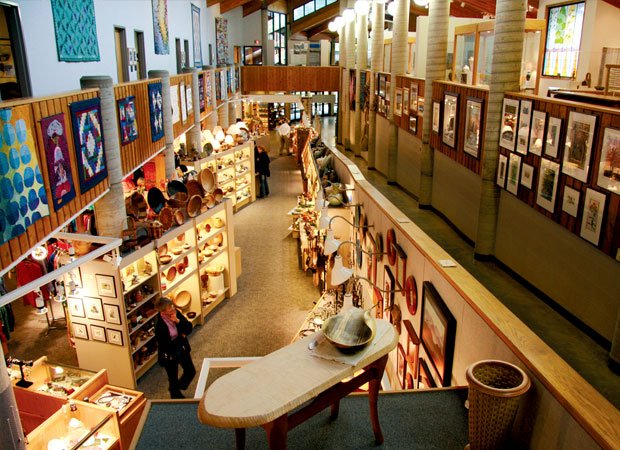
In 1931, Goodrich gave Allanstand to the fledgling Southern Mountain Handicraft Guild (now the Southern Highland Craft Guild). The Allanstand Shop now operates out of the Folk Art Center on the Blue Ridge Parkway in Asheville, less than three miles from the former location of the small schoolhouse where Goodrich got her start in Riceville.
Right: A view of the Folk Art Center on the Blue Ridge Parkway. Photo credit Michael Booher.